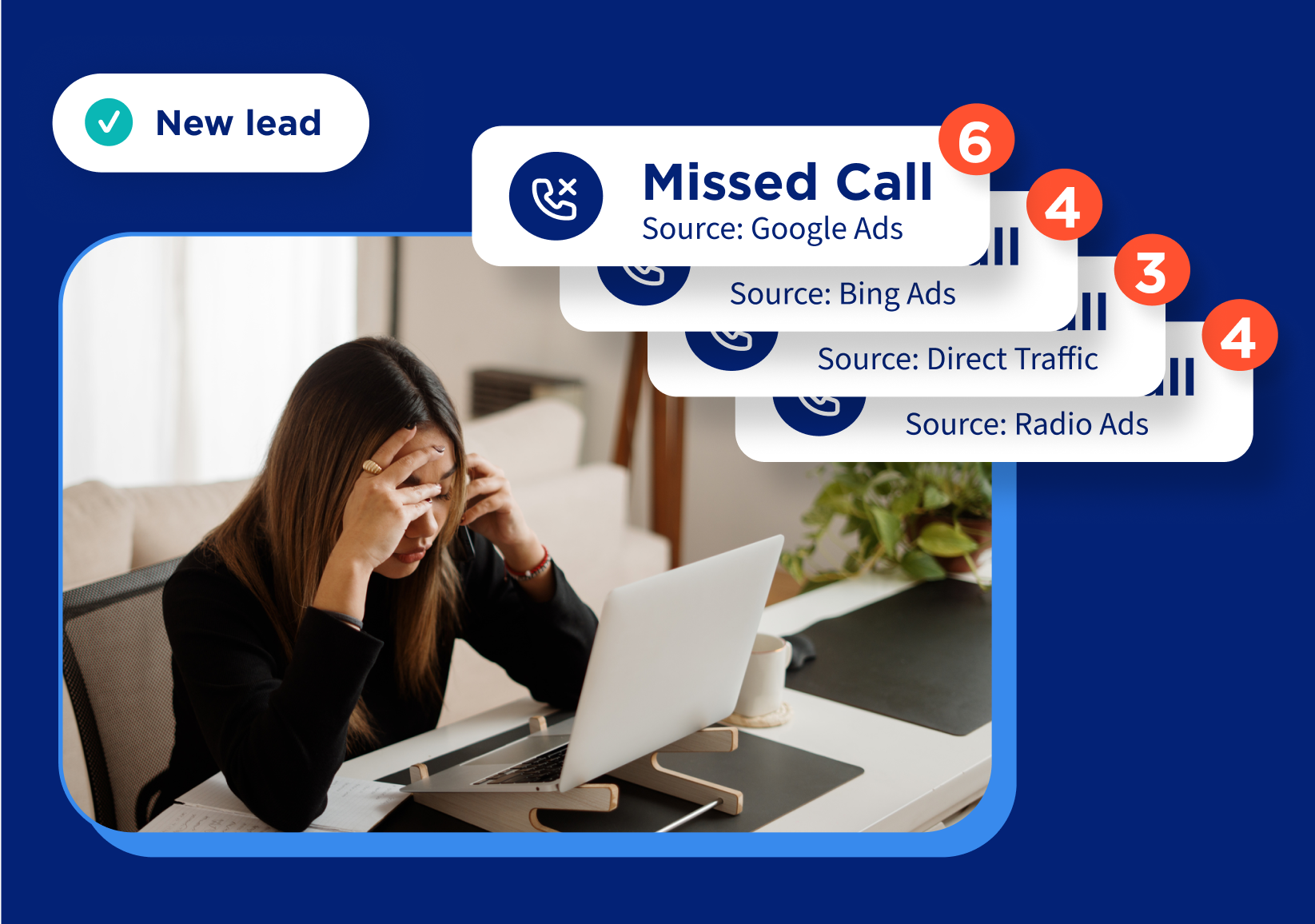Australian telemarketing law is similar to the anti-spam regulations you’ll encounter other Western nations, but there are still key distinctions that every advertiser must follow. While countries like the U.S. have relatively lax regulation around marketing communications, Australia’s consumer-protection laws are more robust.
Learn how CallRail can prevent spam calls from reaching your business.
Australia has a set of national advertising regulations known as Australia Consumer Law (ACL), which follow the precedence set by similar legislation in other countries. The ACL covers topics like false advertising, intellectual property, and pricing regulation — a full understanding of these laws is essential for new Australian businesses, and for international marketers who are considering making inroads in Oz.
However, Australia also has its own unique marketing laws concerning telemarketing and spam calls, which were first laid down in the country’s Spam Act of 2003. Any domestic or international advertiser who wants to compete in Australia and use calls as part of their marketing strategy must stay abreast of these regulations, or risk incurring fines of up to AUS $1.7 million per day and the potential loss of their business license.
Even worse, violations of Australian anti-spam law could result in the seizure of the computer equipment used for the offending marketing, as well as the potential liability for civil suits. Let’s review some of the basics of Australian telemarketing law to ensure your business always stays above-board in the Land Down Under.
Personal vs. Commercial: A Critical Distinction
One of the most important legal distinctions in Australian marketing law is the difference between personal and commercial phone calls, as laid out in the Spam Act of 2003. It’s critical for any Australian marketer who uses phone calls in their marketing to do their best to follow these rules, so make sure to impress upon your team the importance of following these regulations.
Generally, a personal communication is any kind of noncommercial exchange between individuals for non-business-related purposes. For example, picking up the phone to dial your great aunt Sheila for her Anzac biscuit recipe is, beyond a shadow of a doubt, a personal call.
A commercial call or communication, correspondingly, is a phone call that does any of the following:
- Offers, advertises or promotes the supply of goods, services, land or business or investment opportunities
- Advertises or promotes a supplier of goods, services, land or a provider of business or investment opportunities
- Helps a person obtain property, commercial advantage or other gain from another person
If a message or phone call meets any of the above requirements, it’s considered a commercial communication and is therefore subject to Australian marketing regulations. Odds are, that includes your next advertising campaign!
The Spam Act of 2003 does, however, make exceptions for non-personal communications that can be sent to someone without following these regulations. There are a set of limited exemptions for marketing communications, as well as exemptions for messages from governmental organizations, registered charities, educational institutions, and political parties.
Respect the Do Not Call Registry
Like most other Western nations, Australia maintains a national ‘Do Not Call’ list. This is a free, government-provided service which any citizen can use — after entering their phone or fax number into this national registry, they will no longer receive unsolicited calls from most marketers.
Once an individual or organization applies to place their number on the Australian Do Not Call Registry, telemarketers and fax marketers have 30 days to stop contacting them. Marketers who violate this law will not only incur hefty fines and penalties from Australia’s anti-spam regulators, they may also be open to civil prosecution in court, depending on the extent of their violations.
To help businesses stay compliant, the Australian government offers a free ‘washing’ service. With the help of this program, marketers can cross-reference their contact database against the numbers listed in the Do Not Call Registry (similar to a ‘suppression list’ for an email marketing database), and prune any bad or invalid numbers.
Pruning bad numbers and washing your contact database may take a little bit of extra work on your part, but the effort is well worth the end results: A better and more engaged contact database.
The Importance of Express and Inferred Consent
Much like the difference between commercial and personal communications, there is likewise a distinction between the ways a recipient can consent to receive marketing material from you. Australia’s marketing consent laws cover both phone calls and email marketing, so it’s critical to ensure that all of your marketing efforts follow these rules.
Express Consent is when an individual provides you with a phone number or email address and indicates that they wish to receive marketing messages from you. Under Australian law, express consent can come in many forms — filling out a subscription or opt-in form, providing a business card, or supplying contact info over the phone all meet the rules for express consent. Consent laws require that marketers maintain their contact database with info detailing how their contacts opted-in or consented to receive marketing messages.
Crucially, the intended recipient must be made aware that they are signing up to receive marketing messages, and they must be presented with the option to opt-out of your communications at any time. Remember: It’s up to the marketer / sender to both prove consent and maintain detailed opt-in records.
Inferred Consent, on the other hand, is when a recipient can be reasonably expected to provide consent based on a previous business relationship, or because the recipient’s contact information is widely publicly available and the marketing in question is directly related to the recipient’s role or function.
A transactional email about an upgrade to a software service, or a sales email that targets a company via contact information publicly available on their website both meet the definition of inferred consent under Australian marketing law. Violations of these laws are met with similar fines and penalties as other infractions — it’s a simple distinction, but it’s also a consistent stumbling block for marketers who don’t properly maintain their opt-in records.
Check out this helpful FAQ from the Australian Communications and Media Authority for more tips on consent law and how to keep your contact database in tip-top shape.
The Rules of the Road for Australian Telemarketing
You’ve verified your contact database, confirmed their opt-in status, and primed your staff to prepare for your next marketing campaign. Now that the fine details are out of the way, the final step is figuring out how to organize and structure the actual marketing calls you’ll be making to your audience.
When making a marketing call, the recording or agent making the call must supply specific information as soon as the call starts:
- The name of the person making the call
- The name of the business or organization the call is being made on behalf of
- The purpose of the call
If asked, you must also be prepared to supply the recipient with the following information:
- The contact information of the business or organization making the call, and any businesses or organizations they are speaking on behalf of
- The name and contact information of the individual at your organization responsible for handling inquiries and complaints
In addition, you may only make telemarketing calls during specific periods of time. Telemarketing calls may only be made during the times listed below, which refer to the time of day at the recipient’s usual residential address:
- Weekdays between 9:00am and 8:00pm
- Saturdays between 9:00am and 5:00pm
For more on this topic, the ACMA website has a detailed FAQ covering the ins-and-outs of telemarketing calls, the type of information that the caller must include in their message, as well as other sundry rules of the road.
Learn how CallRail can prevent spam calls from reaching your business.










